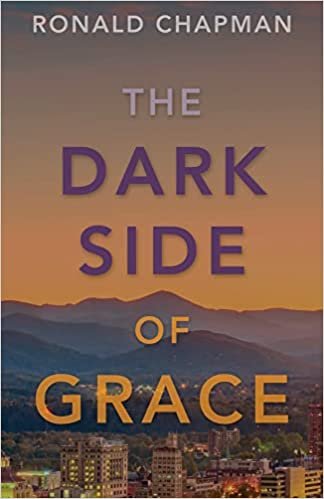Why Forgive?
/Looking to Forgive and Beyond
Recently while discussing forgiveness practices in a workshop, I was asked about forgiving the unforgivable. It involved a little girl in New Mexico, Victoria Martens, who was senselessly and horrifically murdered. It’s the kind of awful story that forces nearly everyone to question how they could ever forgive something so terrible.
First, and most importantly, heinous behaviors are incredibly difficult to engage, in part because of the visceral and emotional effect they have on us. All of which makes it that much more challenging to consider forgiveness in any way. Truth be told, the closer we are to the person and the events, the less likely it is that the subject of forgiving should be brought up while the emotions and grief are so raw. It may be better to only support someone with their sorrow until a later date. Forgiving will just have to wait.
That said, in the years I have worked with hundreds of people seeking to forgive, or to release some grievance or injury, I’ve seen over and over again that most of us do not come to forgiveness out of principle or virtue, rather out of suffering. The price any one of us might pay for unresolved wounds can be terrible in its own right: depression, life failures, broken relationships, self-inflicted injury, and even suicide. Worse still, when unresolved, such deep injuries are sometimes acted out upon others; the victim becomes the perpetrator.
I often say that what we’re seeking is to release injuries, wounds, or grievances that rule and ruin our lives. So to be honest, the first best reason to practice forgiving is intensely practical.
To end suffering is a wonderful outcome. But there could be more.
What if it were possible to come to such an understanding about others that we tap into an unknown well of compassion and empathy?
What if ultimately our responses, our behavior, or our being were fundamentally altered or improved through forgiving?
What if we could find that in coming to understand, our perspective is transformed and we realize there is nothing to forgive?
In my experience, this is the truth of forgiveness practice. Our understanding becomes so deep and rich, that we see everything that emerges into human behavior to be perfect for time, place and circumstance, even if it is horrific.
It is then that a miracle falls upon us as empathy and compassion take hold in us. Very likely we will see that were it not for good fortune, we could have been a perpetrator. With that comes incredible humility, and sometimes even great gratitude.
Finally, it becomes possible to act from a vantage that is free from injury or grievance. No wrongs are perceived, so nothing need be forgiven. It is very likely that our actions will then contribute to solutions, rather than continuing cycles of violence. And most certainly we will become more whole, which benefits everyone and everything.
Seeing True
While I am fortunate that the wounds in my own life did not rise to such a horrific degree, there were a number of times over a period of years where states of being unforgiving of others and myself caused me to want to kill myself. Actually, I never had the kind of will that would allow me to commit suicide, instead every month or so I would find myself rocking on a meditation pillow wrapped in a Navajo blanket asking God to kill me. As best I could tell, the suffering would never end. And for reasons that defied my understanding, I was simply unable to let go of my grievances.
I was compelled to engage my own inner demons. I could not kill myself, and yet I could not live without suffering. I wanted release, but was unable to let go. Eventually I found supporters and professionals who were able to walk the path of forgiveness with me and teach me. I became an avid student, practitioner and teacher out of necessity, not out of virtue.
The way of forgiving is not a theory for me. While the idea of healing and release may seem ridiculously idealized as I describe it, it is true to my experience. In the end, why I should forgive myself and others becomes irrelevant. Even the how is unimportant. It is nothing but a stark clarity that either I must forgive, or I will suffer.
Seeing True in Action
The only place to begin our journey of forgiving is to identify some unsettled matter that is troubling us. If necessary, we may need to break through our own denial by looking honestly within ourselves. If we are avoiding others, or find ourselves regularly at odds with someone or some situation, or notice passive aggressive behavior on our part, or see clearly that we are abusing others in some way, it is quite likely we have something that needs our attention.
Once we’ve gained a glimpse of the person, circumstance or situation, we’ll need to engage it and explore it. This exploration must look beyond the seeming external cause, and turn attention to how it is we are hooked by it, and why we are unable to release it. Sometimes we will need assistance in diagnosis because we are too close to see clearly. Seek out a wise friend, a confidante, a minister or therapist. Healing can take some time, which may require that we remind ourselves of the harm we are perpetuating by holding onto something.
If a beginning is made, great possibilities for healing are ahead of us. Our outcomes are only limited by our ability to release more and more deeply.
Updated September, 2023














